Yeovil People
William Cockey
Clock Maker
There has been a great deal of mistaken identity concerning William Cockey, clock maker of Yeovil and the famous William Cockey of the Warminster and Wincanton family of bell founders and clockmakers who was born in 1663 at Warminster and probably died around 1721.
The William Cockey who made clocks in Yeovil from at least 1732 must be a quite different person, as he was still working in Yeovil in 1761 and possibly later. That having been said, it is likely that William Cockey of Yeovil was related to the Warminster / Wincanton Cockey family and it is entirely possibly that William of Yeovil was the son of William of Wincanton with whom he is so frequently confused.
William Cockey rarely gets a mention in Yeovil's records, he was however listed in the monthly 1729 Poor Rate for April. That he was taxed only one penny indicates that although he was a property owner, the property was quite modest.
In 1736 the Churchwardens' Accounts of Montacute recorded a payment - "Mr. Cockey For Righting the Clock and for the Agreement for the Keeping of in Repair for ye Year £1 4s 6d". From 1737 until 1761 Cockey was paid £5 per annum to look after this clock.
The Churchwardens' Accounts for St John's church, Yeovil, recorded that a payment was made in 1761 to Mr Cockey for maintaining the fire engine but there are no records of him as a clock maker.
Three examples of long case clocks by William Cockey of Yeovil are shown below but sadly I have no further information at present.
gallery

An early 18th century thirty-hour longcase clock with an unusual 11 inch brass dial with matted and engraved centre, Arabic and Roman chapter ring with fleur de lys half hour markers, the maker's signature around the six and an unusual tulip shaped aperture for the decorative calendar disc, the posted frame movement with turned columns, anchor escapement and countwheel striking on a bell, the associated oak case with flat top, concave throat moulding, rectangular trunk door with star inlay to the centre and plain base on a moulded plinth 7ft 9in (206cm) high.
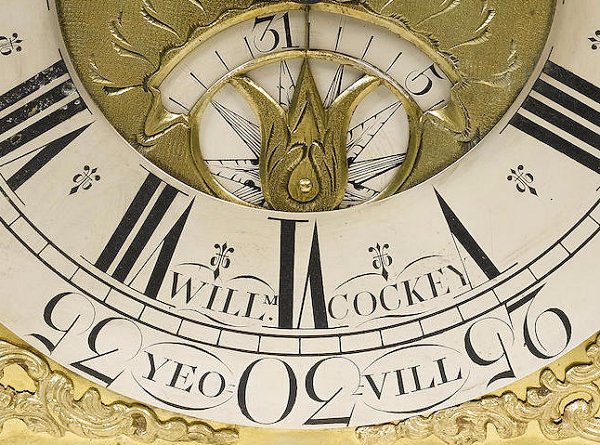
.... and a close-up of his name and the spelling of "Yeovill" confirming an early 18th century date for this clock.

A long case clock by William Cockey of Yeovil. It has a brass and steel face with Roman numerals and is signed "Wm. Cockey, Yeovil". The clock has an oak case, the hinged waist door with relief carved bust. Over size is 75" x 17" x 9" (191cm x 43cm x 23cm).
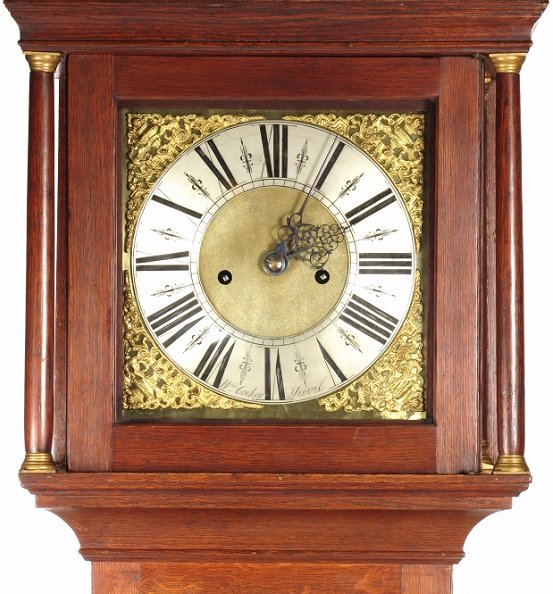
The dial of the above long case clock.
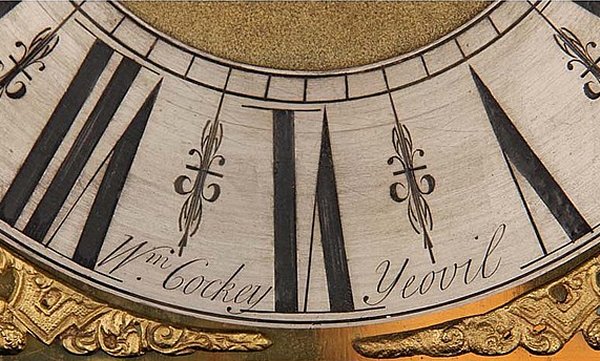
.... and a close-up of William Cockey's signature.
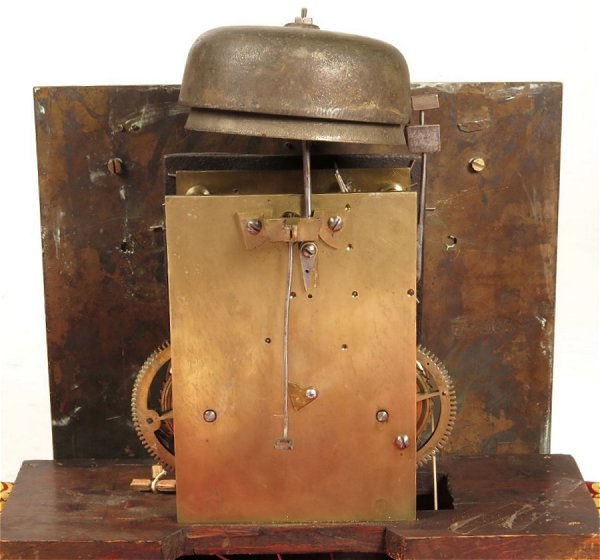
The rear of the clock movement.
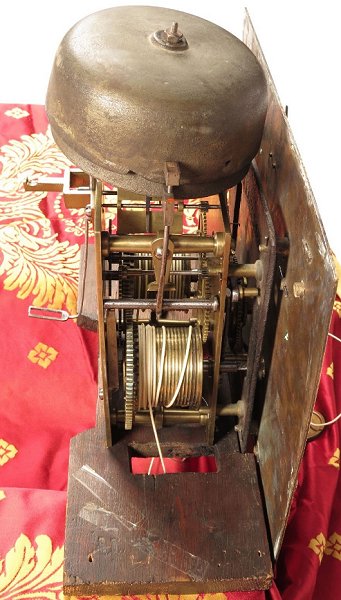
.... and William Cockey's clock movement seen from the side.
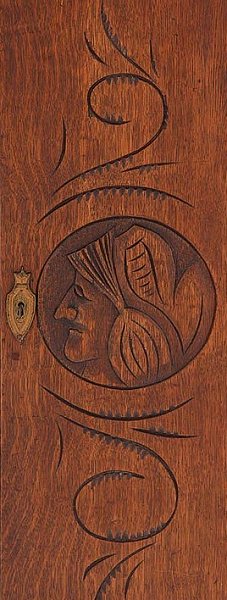
Detail of the somewhat crude carving to the door of the case.

Taken from a sale catalogue "William Cockey, Yeovil, a mahogany longcase clock the thirty-hour birdcage movement with turned, ringed pillars, striking the hours on a bell with an outside countwheel, the eleven-inch square brass dial having a raised chapter ring engraved with black Roman hour numerals, Arabic five minute numerals and signed either side of VI o’clock Willm. Cockey, Yeovil, with cast brass female-head spandrels to the four corners and a matted dial centre, the oak case having a swan-neck pediment with brass patrae and fluted pillars to the hood with cast brass capitals, with the plain base standing on bracket feet, height 201cm".

.... and a close-up of the head of the above long case clock by William Cockey. This clock sold for just £400 in 2013.